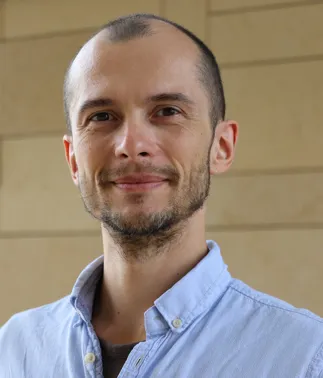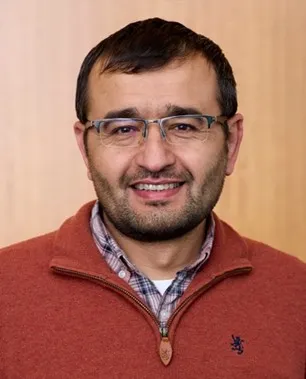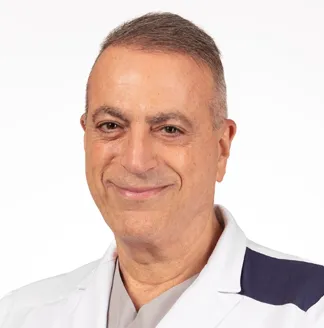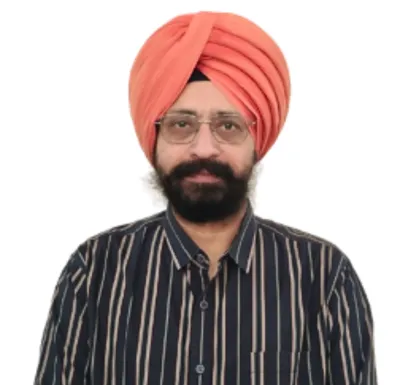
Knowledge-based diagnosis of genetic disease
Dr. Robert Hoehndorf,
Associate Professor, Computer Science,
Principal Investigator, Bio-Ontology Research Group,
King Abdullah University of Science and Technology, Kingdom of Saudi Arabia
Robert is an Associate Professor in Computer Science at King Abdullah University of Science and Technology in Thuwal where he is the PI of the Bio-Ontology Research Group (BORG). Prior to joining KAUST, Robert held research positions at the Max Planck Institute for Evolutionary Anthropology, the European Bioinformatics Institute, University of Cambridge, and Aberystwyth University. He earned his PhD degree in Computer Science from the University of Leipzig. Robert's research focuses on the development and application of knowledge-based methods in biology and biomedicine. In bioinformatics, Robert focuses on bio-ontologies and data integration, protein function prediction, and developing models for investigating genotype-phenotype relations. In computer science, his interests lie in Semantic Web technologies and neuro-symbolic methods that combine formal logic and machine learning. Robert has published over 150 papers in journals and international conferences. Robert is Editor in Chief of the Journal of Biomedical Semantics.

Computational genomics at scale: Open-source frameworks for cancer omics and gene regulation
Dr. Aziz Khan,
Assistant Professor, Computational Biology
Group Leader of Computational Biology & Cancer Regulatory Genomics Lab
Mohamed bin Zayed University of Artificial Intelligence, United Arab Emirates
Aziz Khan is an Assistant Professor of Computational Biology at the Mohamed bin Zayed University of Artificial Intelligence (MBZUAI) in Abu Dhabi, where he leads the Computational Biology and Cancer Regulatory Genomics (https://khanlab.bio/) Lab. His research focuses on deciphering gene regulation and the non-coding genome in cancer and precision medicine, using scalable computational and machine learning approaches. His lab develops open-source tools and integrative frameworks to interpret large-scale, multi-omics data. Aziz earned his PhD in Bioinformatics from Tsinghua University and completed his postdoctoral research at the NCMM, University of Oslo. Before joining MBZUAI, he was a senior research scientist at Stanford Cancer Institute, where he led core efforts in cancer genomics infrastructure and contributed to large multi-institutional initiatives, including the Human Tumor Atlas Network (HTAN) and the Metastasis Research Network (MetNet). He has developed widely used computational resources such as JASPAR, Intervene, and UniBind, and has taught and advocated for open and reproducible science as a Stanford/Carpentries Instructor and former eLife/ASAPbio Ambassador. His work bridges AI, genomics, and systems biology, with a mission to enable reproducible, collaborative, and globally impactful science.

Building a Population-Specific Genomic Ecosystem for Precision Healthcare
Dr. Dinesh Velayutham,
Senior Bioinformatics Specialist
Qatar Precision Health Institute (QPHI)
Qatar Foundation
Dr. Dinesh Velayutham is a Senior Bioinformatics Specialist at the Qatar Precision Health Institute, Qatar Foundation, where he leads research in pharmacogenomics, HLA profiling, and population genomics within national biobank initiatives. He earned his Ph.D. from the University of Milan, Italy, supported by an international fellowship from the Italian government, followed by postdoctoral training in genomic medicine and computational biology. With over a decade of experience in next-generation sequencing (NGS) analytics, Dr. Velayutham has contributed to large-scale genomic projects spanning human, animal, and plant systems. His current work integrates genomic, transcriptomic, and clinical data to advance precision medicine in the Qatari population. He has co-authored more than 25 peer-reviewed publications and several book chapters in genomics and personalized medicine. Dr. Velayutham is also actively involved in graduate teaching at Hamad Bin Khalifa University, mentoring MSc and Ph.D. students in genomics and bioinformatics. His professional interests include population-scale pharmacogenomics, causal inference using multi-omics data, and development of population-specific genomic resources for precision health.

Genomic Diagnostics at the Era of Personalized Precision Medicine
Dr. Marios Kambouris
Medical and Molecular Genetics
Sidra Medicine, Qatar
Dr. Marios Kambouris is a Senior Clinical and Molecular Geneticist with over thirty years of international experience in genetics, genomics, molecular diagnostics, and biotechnology. He is certified in Clinical Molecular Genetics and Medical Genetics by the American Board of Medical Genetics and Genomics and also holds professional recognition in Europe and Qatar. He completed post-doctoral fellowships in Clinical Molecular Genetics and Clinical Genetics at the Medical Genetics and Birth Defect Center, Henry Ford Hospital (USA) and earned his Ph.D. in Medical and Molecular Genetics from Indiana University School of Medicine. Dr. Kambouris has established and directed advanced molecular genetics and DNA diagnostics laboratories at King Faisal Hospital & Research Center (Saudi Arabia), Geno-Type Biotechnology (Greece), Gonidio International (Denmark), and Sidra Medicine (Qatar). His research focuses on gene discovery and mapping in both Mendelian and complex disorders, applying next-generation sequencing and homozygosity mapping to identify disease-causing variants. He also advances precision and predictive genomics, developing risk-assessment algorithms that support early detection and personalized intervention in complex diseases such as autism, epilepsy, and type 2 diabetes. At Sidra Medicine, he currently leads efforts in molecular diagnostics and genomic medicine, contributing to precision healthcare initiatives in Qatar and the wider region.

Infectious Disease Unit, Biomedical Research Center (BRC)
Dr. Hebah Al Khatib
Research Associate,
Qatar University
Dr. Hebah Al-Khatib is a Research Associate in the Infectious Disease Unit at the Biomedical Research Center (BRC), Qatar University. She began her career as a Medical Technologist in the Molecular Genetics Laboratory at Hamad Medical Corporation (HMC), Qatar. In 2013, she joined the Qatar Science Leadership Program (QSLP) to pursue advanced studies in Molecular Virology at Imperial College London and Hamad Bin Khalifa University (HBKU). Following her graduate studies, Dr. Al-Khatib joined the Virology Research Team at the BRC, where she has contributed to research on viral evolution, host immune responses to viral infections, and therapeutic antibody development. Alongside her laboratory research, she has developed strong expertise in bioinformatics, specializing in viroinformatics and immunoinformatic. Dr. Al-Khatib has been awarded more than twelve local and international research grants and has co-authored over sixty peer-reviewed publications in high-impact journals, including the New England Journal of Medicine (NEJM) and JAMA.

Drug Repurposing in Transforming Healthcare: A Case Study of Novel Drug Targets in Plasmodium falciparum
Dr. Harpreet Singh,
Department of Bioinformatics,
Hans Raj Mahila Maha Vidyalaya, India
Dr. Harpreet Singh is a bioinformatics researcher with nearly two decades of experience across academic and collaborative research environments. His work focuses on advancing computational approaches in structural bioinformatics, molecular graphics, data analytics, and machine learning. He currently serves as President of the Asia Pacific Bioinformatics Network (APBioNET), a leading regional society promoting bioinformatics education, research, and community building. He also serves on the Executive Committee of Bioclues, India’s largest bioinformatics society supporting mentorship and open-science initiatives, and represents the GALAXY India community within the global Galaxy Project, which enables accessible and reproducible computational biology workflows. Dr. Singh holds a PhD in Biotechnology and an Advanced Postgraduate Diploma in Bioinformatics. He has contributed to more than 45 peer-reviewed publications and has presented his work at major international conferences. He is also involved in a funded international research project focused on heat shock proteins as emerging targets for anti-malarial drug discovery.

